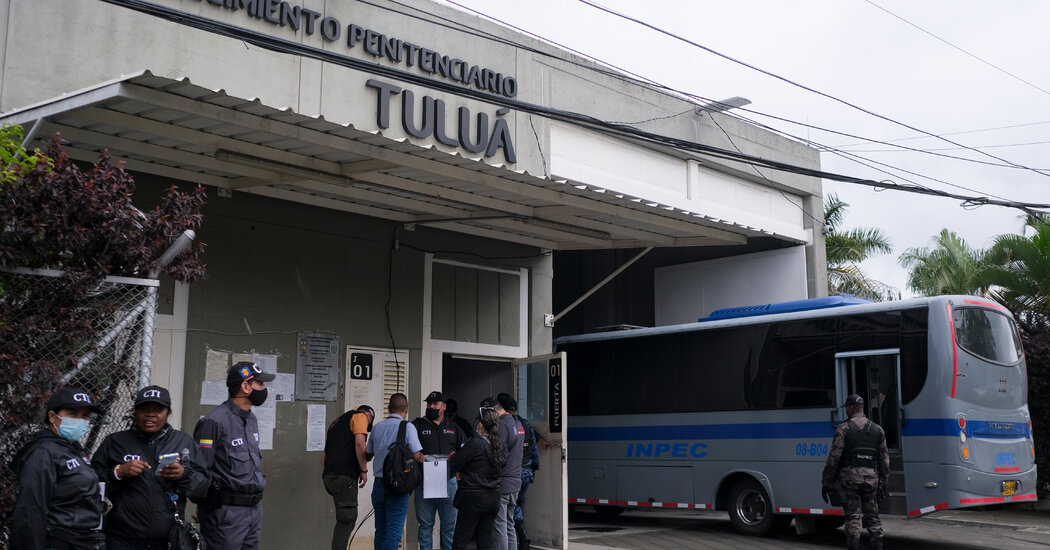Advertisement
Supported by
The director of the country’s prison system said that inmates had set fire to mattresses, and the blaze spread out of control.
Send any friend a story
As a subscriber, you have 10 gift articles to give each month. Anyone can read what you share.
By Emma Bubola and Iñigo Alexander
At least 51 inmates died and 30 people were injured at a prison in Colombia, after a fire broke out during a riot on Tuesday, the country’s top prison official said.
Gen. Tito Castellanos, director of the National Penitentiary and Prison Institute, told Radio Nacional de Colombia that inmates in the Tuluá prison, in southwestern Colombia, had set mattresses on fire, producing an uncontrollable blaze in a pavilion that held about 180 prisoners.
“It is a sad and disastrous event,” General Castellanos told Caracol, another Colombian broadcaster.
Two guards were among those injured, according to officials, who said the riot was staged as part of an unsuccessful escape attempt.
The local fire brigade received the alarm at about 1:35 a.m., Azarías Medina Hincapié, commander of the Tuluá Fire Department, said in an interview. He added that 25 people had been transported to nearby hospitals for treatment of burns and smoke inhalation, at least two of whom died.
The prison houses 1,267 inmates and is 17 percent over capacity, according to the prison agency. Ten of the 11 pavilions that make up the prison were not involved in the fire.
In 2020, more than 20 inmates died at La Modelo prison in the Colombian capital, Bogotá, in clashes with the institution’s authorities over what prisoners said were insufficient coronavirus precautions.
This year, the Ombudsman’s Office of Colombia, which oversees civil and human rights in the country, said that the prison system was overcrowded, with about 96,000 inmates — about 20 percent over capacity.
The ombudsman, Carlos Camargo, proposed an overhaul of the system to allow “the fulfillment of the purposes of custody and protection of human rights.”
“Inadequate spaces, diseases, stress prevail among the inmates,” Mr. Camargo said in a statement in March. “This translates into fights and uprising attempts, which is why we urge comprehensive reform of the penitentiary and prison system.”
Colombia’s president, Iván Duque, wrote on Twitter, that “we regret the events that occurred in the prison of Tuluá,” and said that he was in contact with General Castellanos. “I have given instructions to carry out investigations to clarify this terrible situation,” Mr. Duque added. “My solidarity to the families of the victims.”
President-elect Gustavo Petro – who will be the first leftist to lead the country – wrote on Twitter that what happened in Tuluá, “like the massacre of La Modelo, forces us to rethink a whole rethinking of criminal policy in terms of humanization of the criminal and the dignification of the criminal.
“The Colombian state saw the criminal as an area of revenge and rehabilitation,” he added.
Several hours after the chimney was extinguished, the identity of those affected was not revealed and the relatives of the criminals crowded in front of the Tuluá prison in the hope of knowing more about their circle of relatives.
“I don’t know anything, they probably wouldn’t let us in. We need justice,” María Eugenia Rojas, mother of Luis Miguel Rojas, 23, who was arrested in the pavilion where the chimney exploded, told Noticias. Snail, tears running down his face.
Advertising

